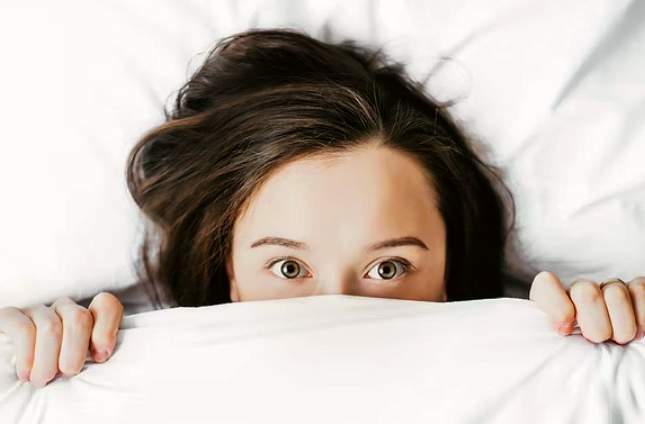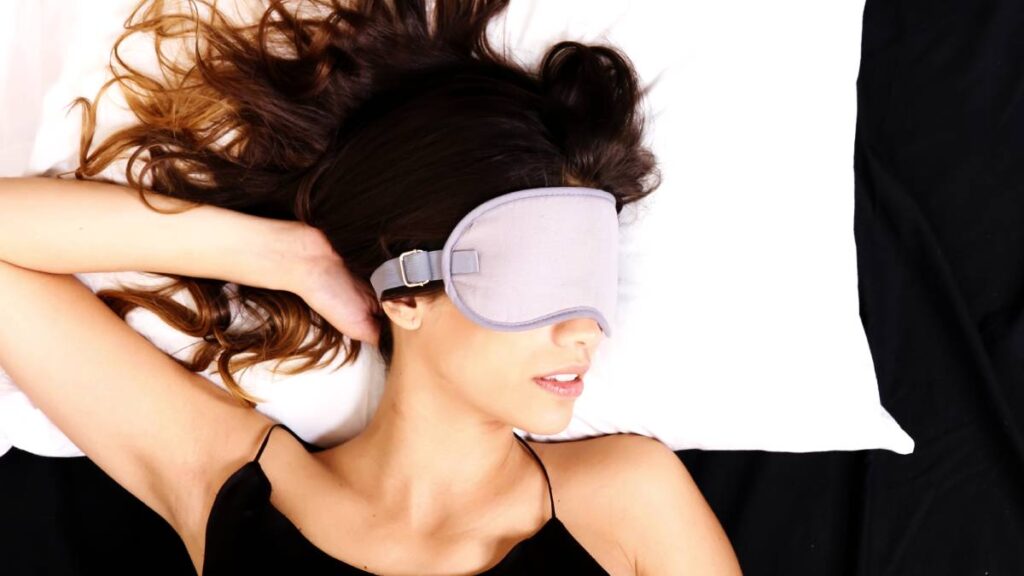“Why am I sleeping so much all of a sudden?” You wouldn’t be the first person to ask that question.
Sleep is a natural process that helps us to rest and recover from the day.
It helps maintain the body’s natural cycles and regulates hormones that control appetite, mood, and weight.
But too much sleep — for example more than nine hours per night — is not healthy.
Excessive sleeping is one of the most common sleep problems, and paradoxically it often has a lot to do with “sleep insufficiency,” in other words not getting enough sleep.
Why do I sleep so much? Sometimes I want to sleep all day …
For some people, excessive sleepiness and daytime sleepiness can be a sign of an underlying condition such as EDS (excessive daytime sleepiness, see below).
🔥 Ready to meet your Twin Flame?
Do you know what your Twin Flame soulmate looks like? 💓
Master Wang is a "psychic artist" and a master of astrology; he's famous in China for being able to draw anyone's soulmate.
Thousands of people have found love thanks to Master Wang's gift.
Don't delay! Yes, I want my Twin Flame soulmate drawing!
One’s typical sleep needs vary from person to person, and they depend on age, daily activities, and other factors.
Eight hours of sleep is normal for some, nine hours for others.
But nine or more hours is usually too much sleep, at least for adults.

Are These Sleep Mantras Effective in Helping Excessive Sleepiness?
Are these 75 blissful sleep mantras effective in helping excessive sleepiness? Many people swear by the power of positive affirmations to calm the mind and promote better sleep.
While results may vary, incorporating these mantras into a bedtime routine could potentially provide relief for those struggling with excessive sleepiness.
What happens if we sleep too much?
Excessive daytime sleepiness is a common symptom of sleep deprivation.
Disturbed sleep at night can mean excessive sleeping in the daytime.
Perhaps unsurprisingly, sleeping too much causes an elevated risk for developing some serious health conditions.
A 2005 study conducted by researchers at Brown University found that when you’re excessively sleepy, your levels of alertness and vigilance become unreliable.
Moreover, they found, sleepiness also causes your cognitive capabilities to diminish, and increases your risk of making errors (just think of how this might affect you behind the wheel of a car).
Health risks like those mean that excessive sleepiness can compromise one’s general health.
Don’t miss out on this unique astrological opportunity!
Are you tired of spinning your wheels and getting nowhere? Well, there’s a reason you can’t get to where you want to go.
Simply put, you’re out of sync: you're out of alignment with your astral configuration.
But: there’s a kind of map that can help you find your alignment. Think of it as your own personal blueprint to success and happiness: a personal blueprint that will help you live your most amazing life. Find out more here!
The 9 main reasons why you’re getting more sleep than usual: just what is causing your increased need for sleep?
It’s normal for healthy adults to experience some daytime drowsiness.
But if you’re sleeping for unusually long periods a few days per week, then read the below list of 8 common causes of excessive sleepiness.
1. Not enough sleep at night
“I wonder why I sleep so much” is an increasingly common concern.
And perhaps the main reason why some people feel they are sleeping too much is because they don’t have a healthy sleep routine.
Healthy sleep habits are crucial to one’s physical health.
And how much sleep we get matters a lot.
In this sense, extreme sleepiness is more of a symptom than a cause.
Regularly sleeping at the same time every night will greatly improve sleep quality, and has many other health benefits as well.
So set a standard wake-up time and keep to it, even if you still feel tired when the buzzer goes off.
Good sleep hygiene might also mean letting go of some unhealthy lifestyle habits (such as late-night snacking).
Stick to your sleep schedule, and even keep a sleep diary if you find it hard to keep track of your sleep patterns.
Little steps like this now will lead to better sleep later.

2. A disruption in your circadian rhythm (that is, your body clock)
This can be due to things such as jet lag or an irregular work schedule (shift work), but can also be due to one of many sleep disorders.
An example is “delayed sleep phase syndrome” (DSPS), which is when your circadian rhythm is not in sync with your external environment.
People with DSPS often go to sleep very late and wake up very late, which is at odds with how society at large is generally organized.
3. Hypersomnia or excessive daytime sleepiness (EDS)
Hypersomnia (excessive time spent sleeping) is often linked to EDS, which is a condition where one has trouble staying awake during the day.
A 2008 study from Stanford University estimated that the number of people who suffer from excessive daytime sleepiness at least three days a week could be as high as 20.6%.
And “severe” EDS was reported in about 5% of the population.
Their article also concluded that men and women are equally affected by EDS.
4. Narcolepsy
Though it only affects only about 0.05% of the general population, the fact that narcolepsy makes you fall asleep uncontrollably makes it a serious condition.
5. A breathing disorder
Obstructive sleep apnea (also known as sleep-disordered breathing, or SDB) can lead to a lot of fragmented sleep.
It is often linked to other underlying health conditions or medical conditions.
For example, the recent rise in cases of sleep apnea parallels a similar rise in obesity prevalence.

6. Age-related cognitive decline
For a a 2012 study in the journal Sleep, a team of French researchers followed almost 5,000 adults for a period of eight years.
They found that EDS (excessive daytime sleepiness) is likely associated with the risk of cognitive decline in the elderly.
EDS, they write, “may be an early marker and potentially reversible risk factor of cognitive decline and onset of dementia.”
7. Mood disturbances such as depression
Lots of evidence suggests that clinical mood disorders such as depression are linked to high rates of sleep disturbances and sleep complaints.
8. Attention-deficit/hyperactivity disorder (ADHD)
ADHD is estimated to affect 5% to 10% of the school-aged population.
9. A bad sleep environment
An unhealthy sleeping environment includes things such as a room that is too cold or too hot.
Or too noisy; loud noise can keep a person awake all night
Or sleeping on an uncomfortable mattress.
Poor quality air can disrupt sleep and is one of the main causes of excessive sleepiness.

Conclusion and takeaway tips: why I sleep so much, answered
If you suspect that you may have a sleep disorder, it is important to visit your doctor or health care provider so they can evaluate your symptoms and do the necessary tests.
Getting too much sleep is intricately linked to getting too little sleep.
And the sleep disorders discussed above mean that how much sleep you get is often out of your control.
Check out these resources for some handy sleep tips, as well as more information on how to overcome both excessive sleep habits and poor sleep habits in general.
Photos: via Pexels, Upsplash, DepositPhotos, and Pixabay.

